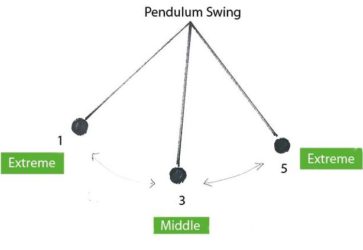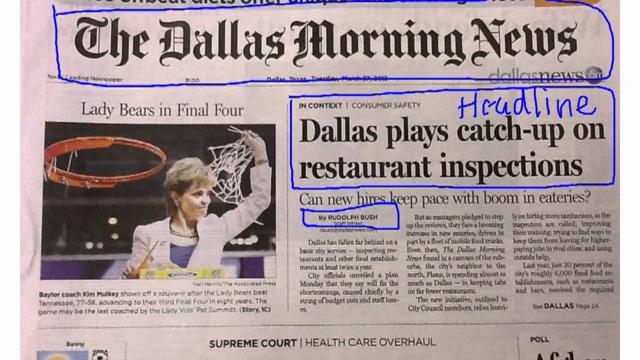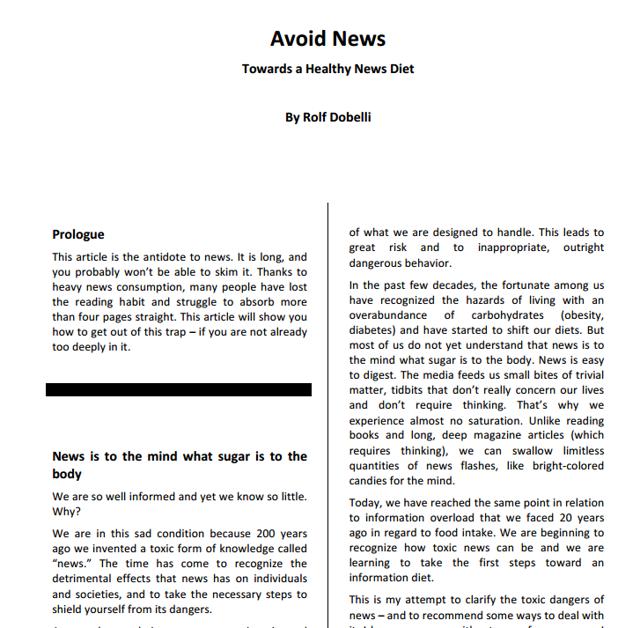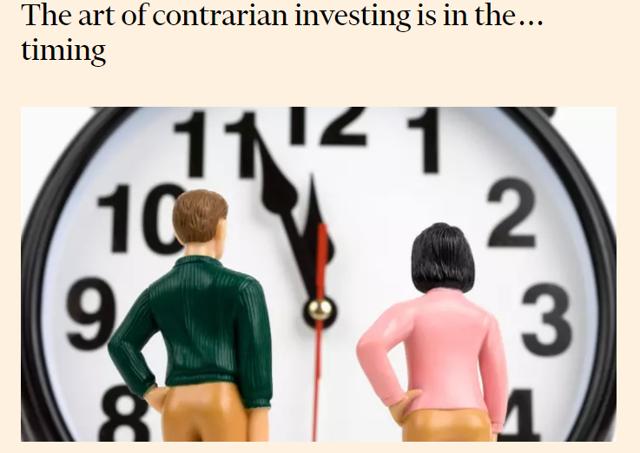- Avoid the news.
- Rarely is trading news profitable.
- Find a long-term investment thesis & stick with it, even if it requires some pain & suffering.
(Travis’s Note: I originally published this article on March 23rd, 2017, however it is one of my favorites, a foundational article, thus I am re-posting it today).
As I was checking the newswire this afternoon, looking for news about today’s congressional vote, after completing some errands, I had to stop for a minute, and remind myself, that looking for the news is often a bad idea as an investor, speculator, or trader.
There are two reasons for this, from my perspective.
First, the news is often priced in, and thus when it occurs, financial securities often move in the opposite direction that most are anticipating. The U.S. Dollar tanking on the latest Fed interest rate increase, with precious metals equities rallying, think Barrick Gold (NYSE:ABX), is one example of this all too common occurrence.
Second, it is near impossible for investors to compete against sophisticated trading algorithms on a short-term basis. The advantage an investor, or even a trader, has over these short-term “news” hyperactive traders is time, and a longer-term investment view.
Simply put, trading the news, or even consuming the news, is bad for our brains. Don’t take my word for it, read this white paper by Rolf Dobelli, which can be accessed by clicking the aforementioned link, or clicking on the screenshot below. Even if you do not want to read the full article, simply read the prologue below.
Consuming the news is bad for our health, but like most things that are bad for us, (go ahead and think for a minute about your own vices), the news is addictive.
Building on this narrative, while trading off of short-term news can be addicting, it is generally a losing battle unless you are a high frequency trader armed with the right computer equipment. If you do not fall into this category, my suggestion is to look for other areas of opportunity in the markets, and I say this from my hard earned, personal experience over a long, active investment career.
As a contrarian, value-focused investor, I do not have too much in common with dividend growth investors, at least today, since I believe dividend stocks are overvalued and too much in-favor at the moment.
However, while I believe dividend growth stocks are in a bubble, amidst a series of bubbles that could get bigger before they burst, and I believe dividend growth stocks are set for a long period of under-performance, after completing a long period of out-performance, I will say that at least most dividend investors get two things right.
Specifically, they “avoid the news”, sparing themselves unnecessary trading costs, and additionally, they have a longer-term investment strategy.
In summary, it is paramount, from my perspective, for investors, speculators, and traders to have a long-term investment strategy, or at least an intermediate-term investment thesis, and then stick to this strategy, even if it goes against you initially.
In fact, consider averaging in to a losing position, if you have a high conviction in your thesis. Another word for buying something at a discount is value investing. The temporary pain and suffering will be worth it, if your intermediate-term, or longer-term thesis is correct.
Have a good weekend,
WTK
P.S. Look closer at The Dallas Morning News image above, which is from the March 27th, 2012 issue, and scan your eyes to the bottom middle of the page. What do you see? Five years and nothing has changed, yet everything has changed.
(Click the picture below for more information…)
Disclosure: I am/we are long ABX, AND POSITIONS IN “THE CONTRARIAN” PORTFOLIOS.
Additional disclosure: Every investor’s situation is different. Positions can change at any time without warning. Please do your own due diligence and consult with your financial advisor, if you have one, before making any investment decisions. The author is not acting in an investment adviser capacity. The author’s opinions expressed herein address only select aspects of potential investment in securities of the companies mentioned and cannot be a substitute for comprehensive investment analysis. The author recommends that potential and existing investors conduct thorough investment research of their own, including detailed review of the companies’ SEC filings. Any opinions or estimates constitute the author’s best judgment as of the date of publication, and are subject to change without notice.




